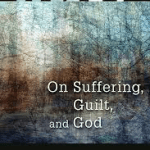This World Is Not My Home (I’m Just A-passin’ Through)
The title of this blog essay is the first line of an old evangelical gospel song. “This world is not my home; I’m just a-passin’ through. My treasures are laid up somewhere beyond the blue….” I grew up singing that in church. Or maybe I heard it sung in church as a “special number.” (That’s what we called it when a person or ensemble sang a song to the congregation.)
When I arrived at Bethel College and Seminary (now Bethel University) in St. Paul, Minnesota, where I taught theology for fifteen years, some of my colleagues used that song as an example of bad theology. The poor song had no defenders. I probably joined in with that some, but I know that in the back of my mind, anyway, I remembered the context in which we sang and heard that song sung.
The religious form of life I grew up in was described by one scholar in the title of his book about American Pentecostalism: “Vision of the Disinherited.” We were the “disinherited” of the world or at least of America. Nobody in my church and nobody in my extended family had graduated from college. Some had attended post-secondary school technical school of some kind and some had graduated from a Bible institute. Especially my childhood church was poor. It was in the poorest neighborhood in the city of about 200 thousand people. Many of the people had chronic illnesses and very little access to doctors or clinics or hospitals. I, myself, was not given antibiotics when I had strep throat and developed rheumatic fever (a common side effect of strep infection in children). I would not surprised if nobody in our church had insurance of any kind. For two years when I was a child I lived in a house near the state capitol building that had no running water indoors.
Pentecostalism and much of American evangelicalism “grew up” in that economic and social milieu. Maybe ours was worse than most, but most of the evangelical Christians, especially Pentecostals, in the 1950s and before were relatively poor and uneducated compared with the rest of society. The people I grew up with, in church, were the salt of the earth, but “this world” was definitely NOT their “home.” Their lives were hard. They looked forward to heaven. They sang about having a “mansion just over the hilltop.” But when the subject came up, they expressed a bit of pride in their lowly status because Jesus said people like they were would inherit the kingdom of God.
At Bethel I bristled a bit, but bit my lip, when my colleagues dumped on “This world is not my home.” They were taking the song entirely out of context. And they were forgetting that the Bible does say that we should not consider “this world” (the social systems of the world) our home but consider ourselves citizens of a new city to come.
When I was growing up in evangelical Christianity in America, most evangelicals sang about heaven and preached (or heard preaching) about heaven. My, my how things have changed. I don’t think I’ve sung a song about heaven or heard a sermon about heaven in many years. We have become “comfortable in Zion.” (That’s an old fashioned way of saying complacent about spiritual things, comfortable with this world and the “things of earth.”
Another song sung to us in church and heard on Christian radio was “The things of earth will dim and lose their value, when we recall, they’re only borrowed for a while.” Another one: “Farther along we’ll know all about it.” (I actually had the privilege of singing that one in a duet with Bill Gaither!)
I have to say this is one of the biggest changes I have observed and experienced in American evangelical Christianity. Focus on heaven has almost completely disappeared. Perhaps the good side of that is that more of us care about this world, but surely there could be a better balance.
Frankly, the older I get, the closer to death that I get, the less I care about this world and the more I want to hear about and meditate on my “heavenly home…bright and fair.”
*Note: If you comment, keep it relatively brief (no more than 100 words), on topic, addressed to me, civil and respectful (not hostile or argumentative), and devoid of pictures or links.*














